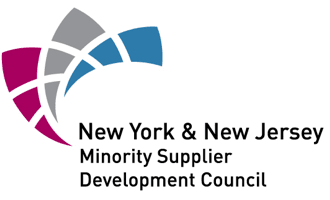This post contains affiliate links. If you use these links to buy something, we may earn a commission.
Accessibility isn’t just a kindness, it’s the law. The 1990 Americans with Disabilities Act (ADA) was established to allow disabled people equal access to goods and services, websites included. However, the benefits of ADA compliance go beyond avoiding legal issues.
People with disabilities, such as sight or hearing loss, aren’t any less valuable as customers, so it’s important to keep their accessibility in mind. In fact, according to the U.S. Department of Commerce, companies without accessible sites are losing $6.9 billion a year to competitors whose sites are accessible.
Here are some of our tips for keeping your website ADA-compliant, and why it matters for your site and brand.

ADA Compliant Websites Reach More People
ADA compliance naturally increases your website’s reach by making it possible for more users to easily navigate it. According to the CDC, roughly 11% of people in the United States deal with vision or hearing loss. Ignoring such a large part of the population means missing out on a huge group of potential customers.
Inclusive Sites Offer a Better User Experience
Keeping compliance in mind allows any user, regardless of their disability, to navigate and engage with your website and brand. Minor changes like adding alt tags on images and closed captioning to videos ensures that more users can understand and enjoy all your site has to offer. Remember, no matter how great the content is, it’s next to useless if a visitor can’t access it.
Compliance and Search Engine Optimization Overlap
Fortunately, many key compliance issues, such as alt tags, organized content, and properly filled out headings, tags, and descriptions, also fall in line with SEO best practices. These optimizations not only improve accessibility, but also provide search engines with more information about what’s on your website. Additionally, improved website accessibility often leads to better user engagement and reduced bounce rates, both of which boost a website’s search engine rankings.
ADA Compliance Enhances Your Brand Reputation
From a brand perspective, having a fully compliant website is a great look. When website visitors, disabled or not, see the effort you put into an accessible user experience, it sends a message that your business cares. This can help enhance your reputation, and may make customers more likely to support your business knowing that you prioritize accessibility and inclusivity. According to Click-Away Pound, 82% of surveyed consumers said they would often return and spend more with a company that provides an accessible online experience.
Time to Get Compliant
Accessibility should be treated the same way you handle any website optimization. Always be on the lookout for usability issues and address them as soon as they become apparent, either on your own or through an accessibility plugin (we use accessiBe for our website). And if you need a hand finding where to start improving, you can always reach out to our web team about scanning your site.
Whether it’s for user experience or SEO optimization, an ADA-compliant website is always going to be a better performing website, so there’s no better time than now to make your site a more accessible place for everyone.





